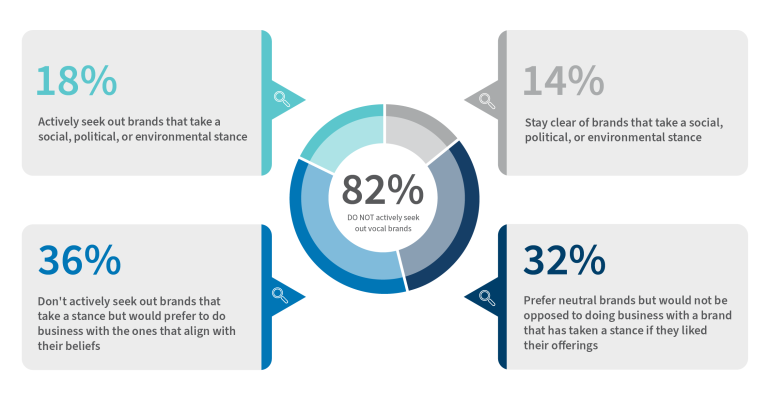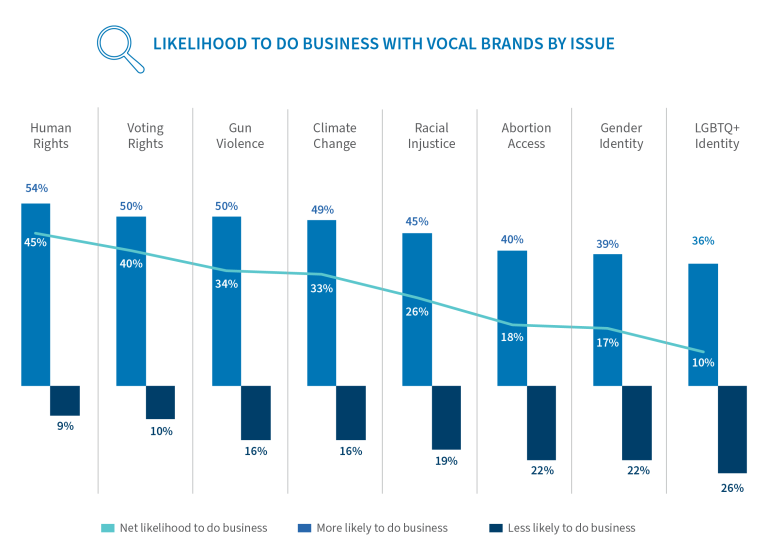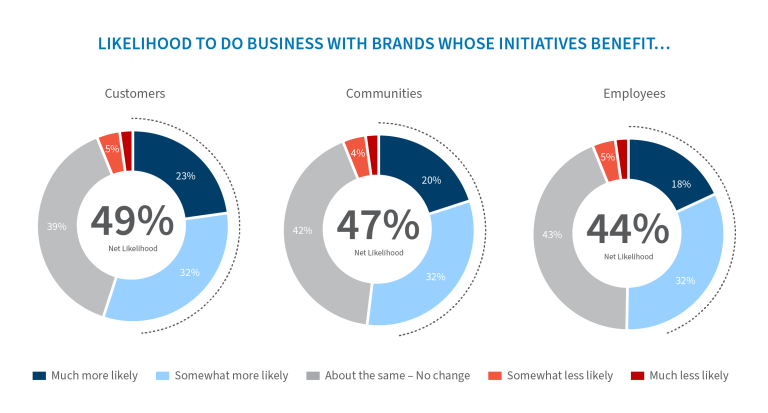What to Say and When to Say It: Managing Corporate Reputation Through Polarizing Cultural Moments
Senior Managing Director , Americas Head of Retail and Consumer Products
[email protected]
With increased public scrutiny shifting the power dynamics between businesses and their customers, companies are carefully assessing their comments around social and geopolitical issues. In these politically polarized times, the stakes are higher than ever as prominent brands face reputational risks over marketing or merchandising decisions.
Companies are increasingly under the magnifying glass, often with their corporate reputations hanging in the balance and, when faced with criticism, some brands either opt to double down or scale back their marketing efforts, while others avoid taking a stance altogether. The question is: How can brands ensure their continued success in a climate where consumers have more influence than ever before?
The reality is that brand activism remains a double-edged sword, and unless companies make a concerted effort to authentically understand their customer audience, they run the risk of losing ground to alternatives in an increasingly competitive market. Different approaches can be divisive, carrying both potential opportunities and significant risks to a brand’s reputation. FTI Consulting conducted a representative nationwide survey of n=2,000 likely voters across the United States to better understand how companies can anticipate these trends and navigate changing consumer expectations.[1]
Treading Cautiously: Taking a Stance Does Not Necessarily Drive Business

FTI Consulting’s research shows that a vast majority of Americans (82%) do not actively seek out brands that a take stance on social, political, or environmental issues. Although more than half of respondents express a preference for brands that align with their beliefs (54%), a significant share would rather do business with neutral brands that refrain from expressing their views on specific issues (46%).[2]
Generationally, Gen Z is more likely than others to prefer non-vocal brands (39%), dispelling the notion that they are uniformly characterized by strong social justice activism. Millennials are the most likely to actively seek out brands that take a stance (22%), although a plurality (32%) still prefer neutral brands. Meanwhile, many older demographics, including Gen X (38%), Baby Boomers (39%), and the Silent Generation (45%), take a more discerning approach to selecting brands, and are more likely than their younger counterparts to prefer brands that align with their beliefs, although not actively seek them out.[3]
While taking a stance on social, political, and environmental issues may enhance a brand’s image among some groups, it doesn’t always guarantee success. Nearly half of respondents (48%) said they would stick with their preferred neutral brand even if there were others that better aligned with their beliefs. In fact, there are significant risks if a brand were to take a misstep, as most respondents would switch brands if their preferred brand took a stance that does not align with their beliefs (59%).[4]
When to Take a Stand: Avoiding Polarizing Issues

As the issues become more politically charged, companies need to communicate their values and beliefs in a way that elevates their brand narrative and promotes their purpose. Our survey reveals that more universal issues such as human rights (45%) and voting rights (40%) tend to garner greater consumer interest compared to more polarizing topics, such as abortion (18%), gender identity (17%), and LGBTQ+ rights (10%). While liberals and progressives are more likely to support brands that are vocal on these issues, there is a potential to alienate more moderate or conservative consumers. This divide reinforces the importance of understanding your customers and their values to better predict how they will react when companies take a stance.[5]
Customers, Communities and Employees Come First

It’s also important to note that consumers are more likely to reward brands with initiatives that benefit their customers, suggesting that consumer loyalty is deeply rooted in a brand’s commitment to its clientele. Similarly, a majority are more likely to do business with brands that are investing in local communities and their employees, underscoring the growing significance of corporate social responsibility.[6]
For brands, the path to success is inextricably linked to their capacity not only to deliver quality products and services, but also to foster a sense of shared prosperity among its key stakeholder audiences. Striking the right balance between social responsibility and business objectives remains a complex but vital undertaking for brands in today’s social landscape.
Research Methodology
FTI Consulting’s Digital & Insights team conducted an online survey from July 14 to 27, 2023, among n=2000 U.S. national likely voters. For more details on the methodology, please contact Julija Simionenko-Kovacs.
Interested in further exploring insights discussed here and identifying the right reputation management strategy for your business? Please contact our Retail & Consumer Products team.
[1] Representative U.S. nationwide survey conducted by FTI Consulting’s Digital & Insights team of n=2,000 voters from July 14-27, 2023. For additional information, contact [email protected].
[2] Survey question, “Which of the following statements best describes how you seek out brands to do business with (i.e., purchase products or services),” FTI Consulting survey (see supra note 1), FTI Consulting (July 2023).
[3] See supra note 2.
[4] Survey question, “Would you be more or less likely to do business with (i.e., purchase products or services) brands taking a public stance on the following political, social, or environmental issues,” FTI Consulting survey (see supra note 1), FTI Consulting (July 2023).
[5] See supra note 4.
[6] Survey question, “Would you be more or less likely to do business (i.e., purchase products or services) with brands whose social, political, or environmental initiatives benefit employees, customers, suppliers/partners, shareholders/investors or local communities,” FTI Consulting survey (see supra note 1), FTI Consulting (July 2023).
The views expressed in this article are those of the author(s) and not necessarily the views of FTI Consulting, its management, its subsidiaries, its affiliates, or its other professionals.
©2024 FTI Consulting, Inc. All rights reserved. www.fticonsulting.com






